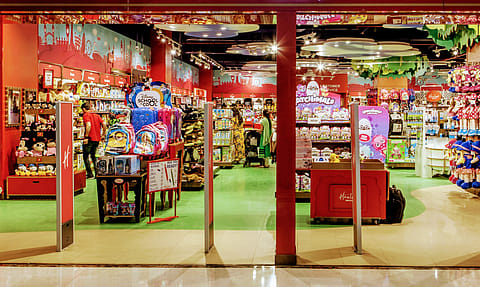Amazon, Flipkart, Snapdeal get notices for selling toys without BIS mark
CCPA has sought a response from these companies in 7 days, failing which necessary action may be initiated against them.

The Central Consumer Protection Authority (CCPA) has issued notices to e-commerce majors Amazon, Flipkart and Snapdeal for the sale of toys that violate standards directed by the government’s Bureau of Indian Standards (BIS).
The authority has sought a response from these companies in 7 days, failing which necessary action may be initiated against them.
Notably, toys have been brought under compulsory BIS certification. Under this, every toy will conform to the requirements of the relevant Indian Standard. It’ll bear the standard mark under a licence from BIS. The rules apply to both domestic and foreign manufacturers, who intend to export their toys to India.
Further, the quality control order on toys was amended on December 11, 2020, to exempt goods and articles manufactured and sold by artisans registered with the Centre. BIS also made special provisions to grant licences to micro-scale units manufacturing toys without a testing facility for one year.
The CCPA has written to the director general, BIS, a national body responsible for standardisation, marking and quality certification of goods sold in the country, to take notice and necessary action.
As per a news agency report, across the country, around 18,600 toys lacking BIS standards were seized from retail stores, including Hamleys and Archies.
The CCPA has also written to district collectors across India to investigate “unfair trade practices” and the violation of consumer rights concerning the manufacture or the sale of such goods and submit an action taken report.
Recommended Stories
As per the Consumer Protection Act, 2019, a "defect" good means any fault, imperfection or shortcoming in its quality, quantity, potency, purity or standard, which is required to be maintained by the manufacturer. Further, the Consumer Protection (E-commerce) Rules, 2020, also mentions that no e-commerce entity can adopt any “unfair trade practice”.
Today, India’s share in the $100 billion global toy market is very small. Around 85% of toys in the country are sourced from abroad.
The Centre has graded the toy industry in 24 major sectors. The Ministry of Micro, Small & Medium Enterprises last month said, amid the steps taken to restrict the import of "sub-standard and unsafe toys" and to promote the domestic toy industry, the country has seen a dipping trend in the volume of the import of toys into the Indian market.
The import of toys to India decreased from $332.55 million in 2014-15 to $109.72 million in 2021-22, a 67% decline, the data shows. Further, the export of toys from India has increased from $96.17 million in 2014-15 to $326.63 million in 2021-22, an increase of around 240%.
(INR CR)
The Centre is also implementing schemes for providing credit support for new enterprise creation, tech upgradation, skill development and infra development. Under PM’s Employment Generation Programme, margin money assistance of up to 35% of the project cost is being provided for the unit costing up to ₹50 lakh for the manufacturing sector and ₹20 lakh in the service sector.